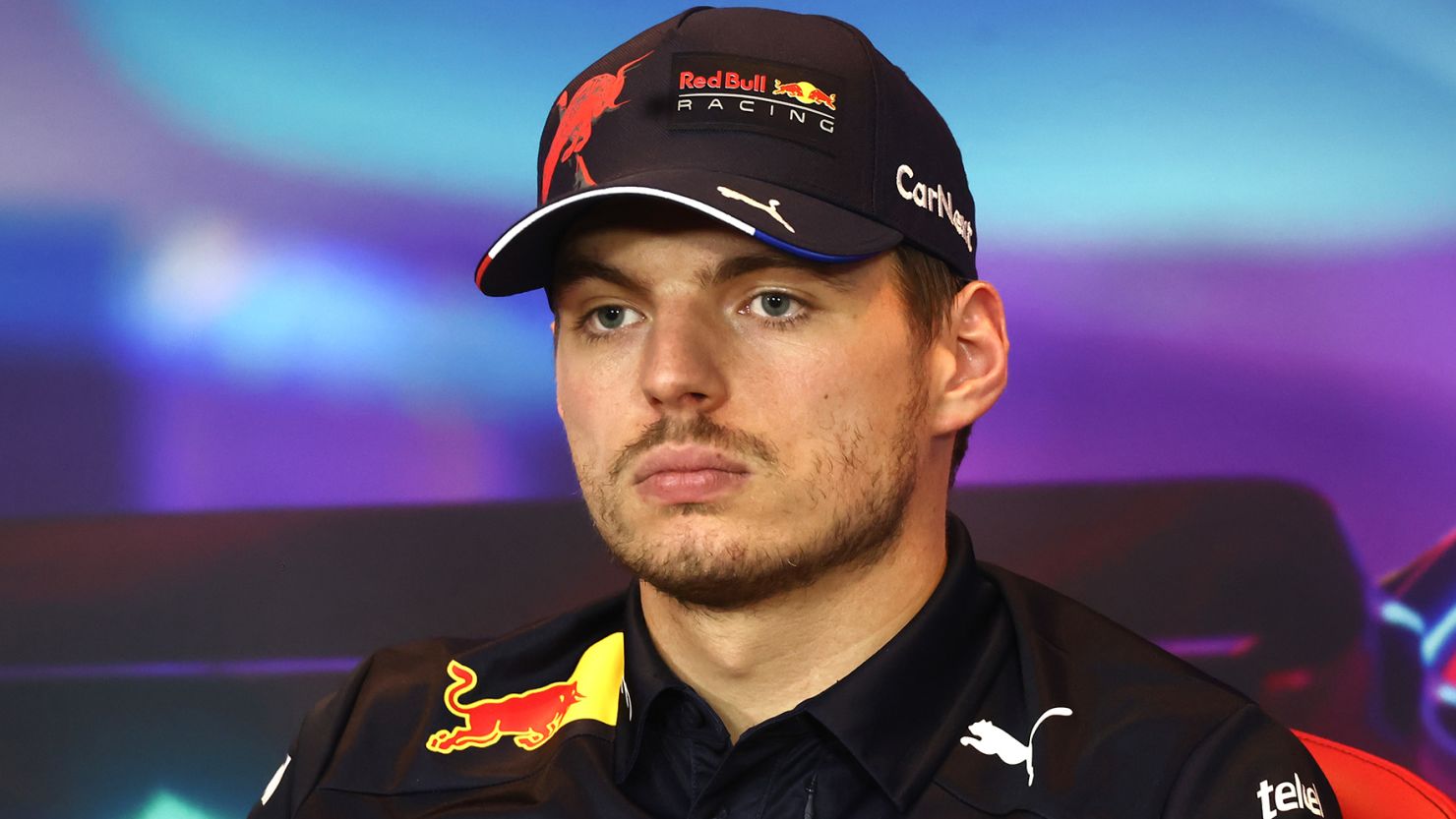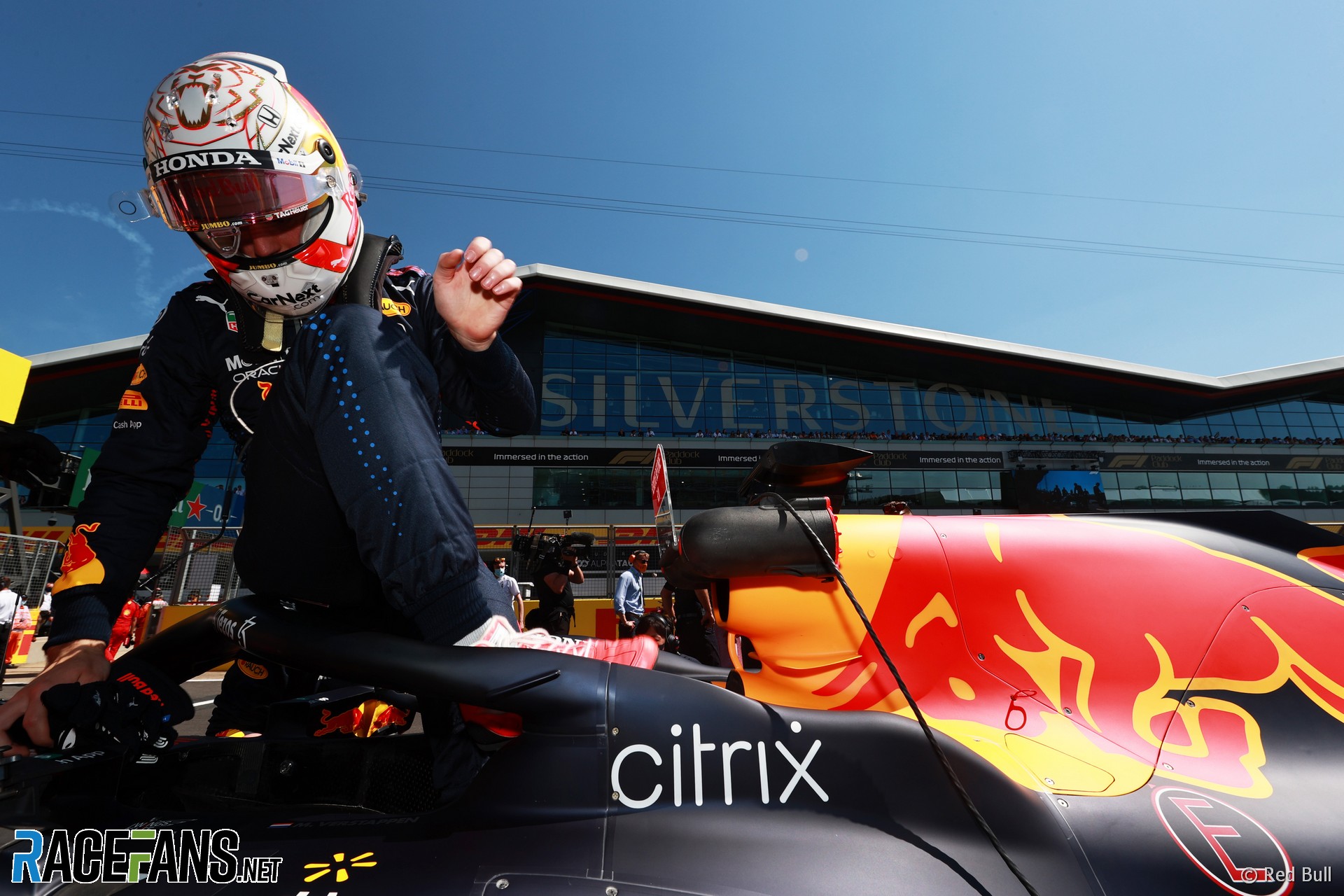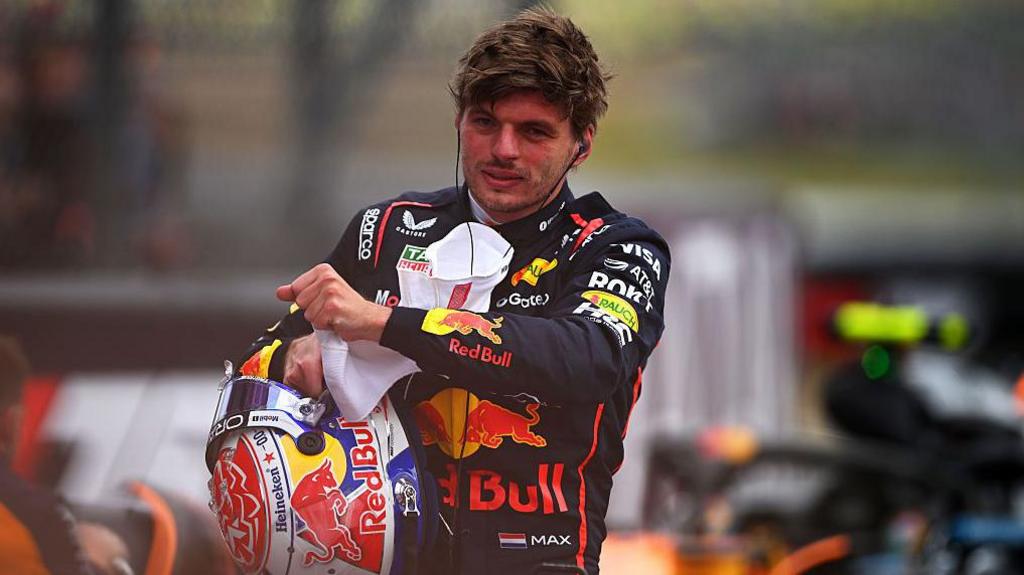In the high-octane world of Formula 1, dominance is a fragile and fleeting state. For years, the Red Bull Racing team, led by the prodigious talent of Max Verstappen, seemed invincible. They were the titans of the track, a well-oiled machine that crushed competitors with ruthless efficiency. But as the 2025 season unfolds, that empire is not just cracking—it’s crumbling before the world’s eyes, revealing a chaotic internal struggle that threatens to erase its legacy.

The most shocking testament to this downfall comes not from a rival, but from their own champion. Max Verstappen, the driver who once made winning look effortless, has delivered a chilling prophecy: Red Bull might not secure a single victory for the remainder of the 2025 season. This stark admission, made in the wake of a disastrous Hungarian Grand Prix where he labeled the RB21 car “undrivable,” signals a crisis far deeper than a few bad race weekends.
Once a relentless hunter of championships, Verstappen has been forced into a jarring psychological shift. With a staggering 97-point deficit to championship leader Oscar Piastri, the dream of a fifth consecutive title is dead. In its place is a grim new reality. Verstappen now publicly frames this season of struggle as a “valuable test bed” for the sweeping 2026 power unit regulations. It’s a pragmatic, almost defensive posture from a driver accustomed to nothing but the top step of the podium. “We always want to be better,” he states, a mantra that sounds more like a desperate hope than a confident assertion.
This isn’t just a champion’s lament; it’s a reflection of a team that has lost its way. The statistics paint a grim picture. Red Bull languishes in fourth place in the constructor’s standings, a position that would have been unthinkable just a year ago. The car’s race pace, once its most formidable weapon, has become its “Achilles heel.” While Verstappen’s immense talent has still allowed him to squeeze out victories in Japan and Imola—making him the only non-McLaren driver with multiple wins—these moments feel like fleeting flashes of a glorious past, not indicators of a competitive present.

The “nightmare weekend in Hungary” was the tipping point, a public unraveling of a team in turmoil. Verstappen’s raw frustration was palpable as he wrestled with a machine that refused to obey his commands. While new team boss Laurent Mekies attempted to downplay the disaster as a “one-off” and not a “true reflection of Red Bull’s competitiveness,” the paddock whispers tell a different story. They speak of a team fundamentally broken.
The source of this decay can be traced to a seismic power shift at the very top. The “Christian Horner era is over.” His shock decision to step down, without public explanation, has left a vacuum of power and stability. Mekies has been thrust into the hot seat, tasked with a “sweeping restructuring effort” to salvage a sinking ship. But the challenges are monumental, chief among them the departure of the legendary Adrian Newey, the design genius who was the architect of Red Bull’s dominance.
Former F1 driver Robert Doornbos voiced the fears of many when he questioned whether Verstappen could ever again rely on Red Bull for championship-winning machinery. The loss of Newey, he argues, is an “impossible” void to fill. “Finding another Adrian Newey is an impossible task,” Doornbos declared, expressing his firm belief that Red Bull won’t return to the top “anytime soon.” This “major upheaval” has stripped the team of its foundational pillars, leaving it exposed and vulnerable.

The man chosen by Horner to be Newey’s successor, Technical Director Pierre Wash, is now under “growing scrutiny.” Since Newey’s departure, the team’s competitive decline has not just continued; it has accelerated. The pressure on Wash and Mekies is immense, as they must not only fix a deeply flawed car but also rebuild the very culture of excellence that has evaporated.
For Verstappen, this is more than a test of patience; it’s a test of loyalty. He is watching the infrastructure that powered his historic rise to greatness dissolve around him. His public comments are a calculated mix of team support and subtle warnings. By focusing on 2026, he is signaling that 2025 is a lost cause. By voicing his fears of a winless season, he is applying maximum pressure on the new leadership to stop the bleeding.
The fall of Red Bull is a cautionary tale of how quickly fortunes can change in the cutthroat environment of Formula 1. It is a story of internal politics, leadership vacuums, and the irreplaceable loss of generational talent. As the team struggles to find its footing, the entire sport watches with bated breath. Can Mekies and Wash steer the team out of this nosedive? Or is this the beginning of a long, painful era in the wilderness for a team that once had it all? For Max Verstappen, a driver in his prime, the future has never been more uncertain. He is a king without a castle, a champion whose greatest battle is now not on the track, but within the fractured walls of his own team.
News
Die Welt hat sich weitergedreht: Marie Fredriksson rechnet leise ab – 5 Stars, die sie im Stich ließen.
Der Klang von Roxette war der Soundtrack einer ganzen Generation. Mit Hits wie „It Must Have Been Love“ und „The…
Conny Froboess: Die bittere Wahrheit hinter der Traumkarriere – Im Alter trägt sie eine unheilbare Wunde.
Der Name Conny Froboess ist in Deutschland untrennbar mit einem Gefühl von Leichtigkeit und sonnigen Kindertagen verbunden. Wenn ihr größter…
DER WACKELDACKEL DER REPUBLIK: WIE MERZ’ „HERBST DER REFORMEN“ IN EINER EISZEIT DER STARRE ENDETE UND UNSERE ZUKUNFT VERPFÄNDET WIRD
Einbruch in die politische Wirklichkeit: Die bittere Bilanz nach dem Versprechen des Aufbruchs Mit großen Versprechungen begann die Zeit, die…
Bommes’ Nerven liegen blank: Unerwarteter Eklat in der letzten Folge von „Gefragt – Gejagt“ schockt die Fans
Ein Augenblick, der das harmonische Ende einer Quiz-Saison sprengte. Ausgerechnet in der vorerst letzten Ausgabe der erfolgreichen ARD-Show „Gefragt –…
Herzschlag-Finale in der Scheune: Friedrich und Laura trotzen dem TV-Kitsch mit dem ehrlichsten Liebesbeweis der Staffel
Der leise Moment, der lauter spricht als jede große Inszenierung Es war der Moment, auf den Millionen von Zuschauern der…
Kai Pflaume bricht sein Schweigen: Das 30-Jahre-Geheimnis hinter Deutschlands Vorzeige-Ehe und warum seine Ilke sein wichtigstes Korrektiv ist
Die deutsche Fernsehlandschaft hat viele Gesichter, aber nur wenige sind so konstant, so sympathisch und so untrennbar mit dem Gefühl…
End of content
No more pages to load












